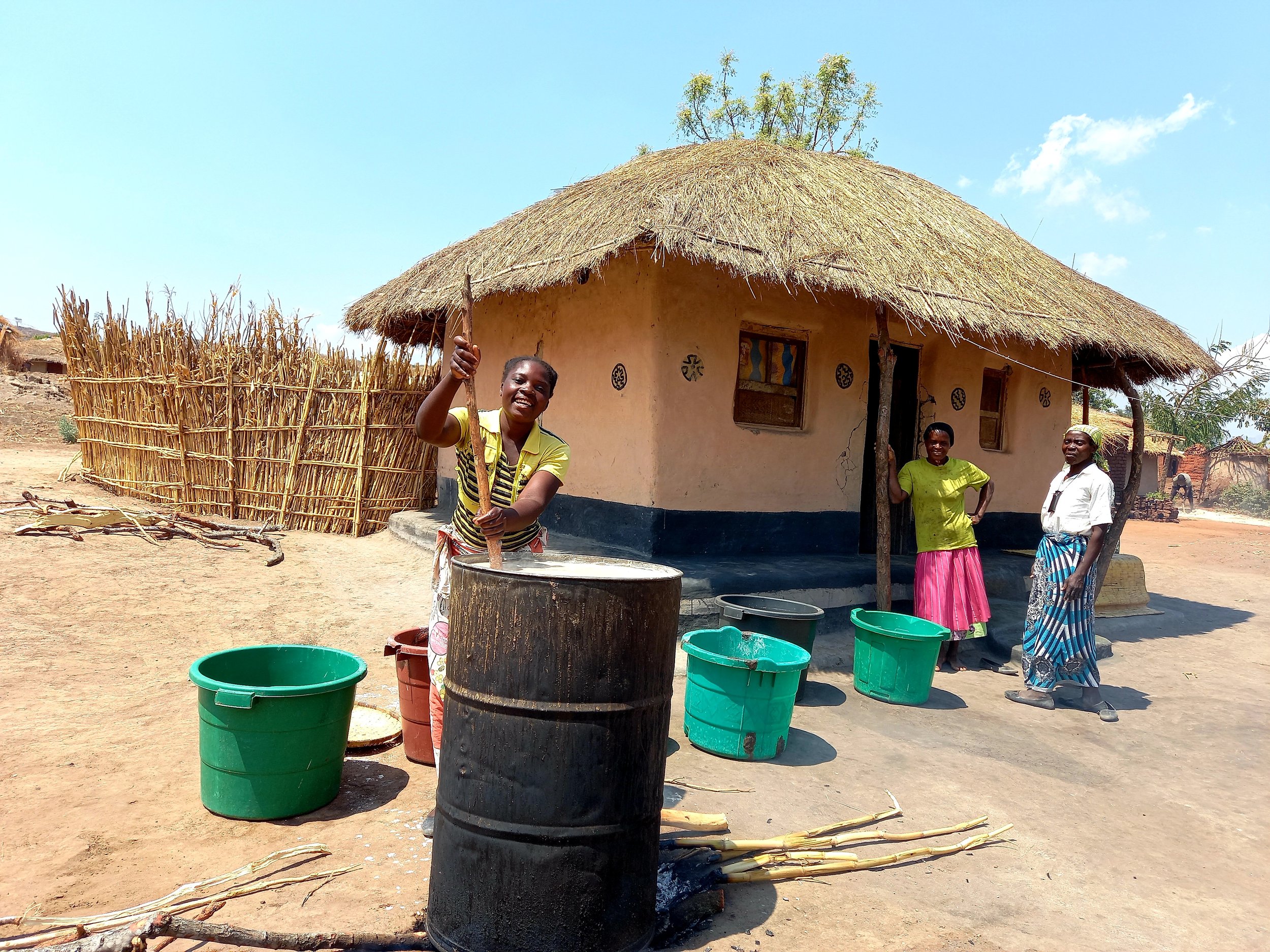Meet Mrs Chikhokho – a small business owner and a mother of three young children, living in a small village in Malawi’s Dedza district. A participant in our GIZ-funded Food and Nutrition Security Programme, her business has grown substantially. As a result, she is reaping big benefits in other areas of her day-to-day life…
Image: Mrs Chikhokho prepares her sweet beer
A baby’s brain develops more quickly during the first 1,000 days of life than at any other time. The nutrition that young children receive during this time is really important and can have a big impact on health in later life.
In many lower-income countries, malnutrition and stunting (being too small for one’s age) is a serious problem and a contributor to preventable child deaths – and Malawi is no exception to this. Some 37% of children in Malawi are stunted and just 8% of children under two meet the minimum acceptable diet (source).
The challenge
Our Food and Nutrition Security Programme (FNSP) is tackling this issue head-on through a multi-sectoral approach. Mrs Chikhokho started to learn about good nutrition back in 2018 through UP-led training sessions, but initially struggled to put her knowledge into action. In her own words:
“In the past, we developed knowledge on nutrition and good hygiene practices, but we did not know how to make money to follow the good nutrition and hygiene practices we were taught. For example, we were not able to buy some food items, such as fish, beef, eggs and milk, that are an essential part of the dietary diversity but are not grown or reared in our households.”
In addition to not being able to afford nutritious food for her family, Mrs Chikhokho explains her family rarely used soap to wash their hands. Money was tight, and so they prioritised soap for chores like washing clothes and dishes. She adds that in the past she was only able to save MK 4,000 (£3.62) in a whole year:
“Businesses that we had started in the past failed because we did not know how to run and sustain them.”
The solution
Circumstances changed for Mrs Chikhokho after she attended our training sessions on entrepreneurship in 2020, where she learned how to calculate capital and profit, and to keep records of her sales. She started a small business, making and selling sweet beer, known locally as ‘thobwa’. She says:
“Access to credit from my village savings and loans group helped me to boost my business and I am now able to buy food and essential items, such as soap, salt, children’s clothes and cooking oil, which improve our household dietary diversity and hygiene. Since last year, my savings have improved in such a way that I earned MK 70,000 (£63.49) at the end of the year.”
The money Mrs Chikhokho has earned from her business has also enabled her to buy small livestock and pay for them to be vaccinated.
Mrs Chikhokho is also brimming with plans for the future. She wants to invest in irrigation farming tools, to safeguard her livelihood and ensure that she can continue to feed her children a nutritious diet.
Context:
The Food and Nutrition Security Programme, funded by GIZ and implemented by United Purpose, is promoting entrepreneurship among project participants through Community Development Officers who trained 222 (175 women: 47men) care group volunteers, with the aim of improving maternal, infant and young child feeding, as well as hygiene practices at the household level. By working with the Community Development Office, we are ensuring complementarity and linkages between nutrition and entrepreneurship.

